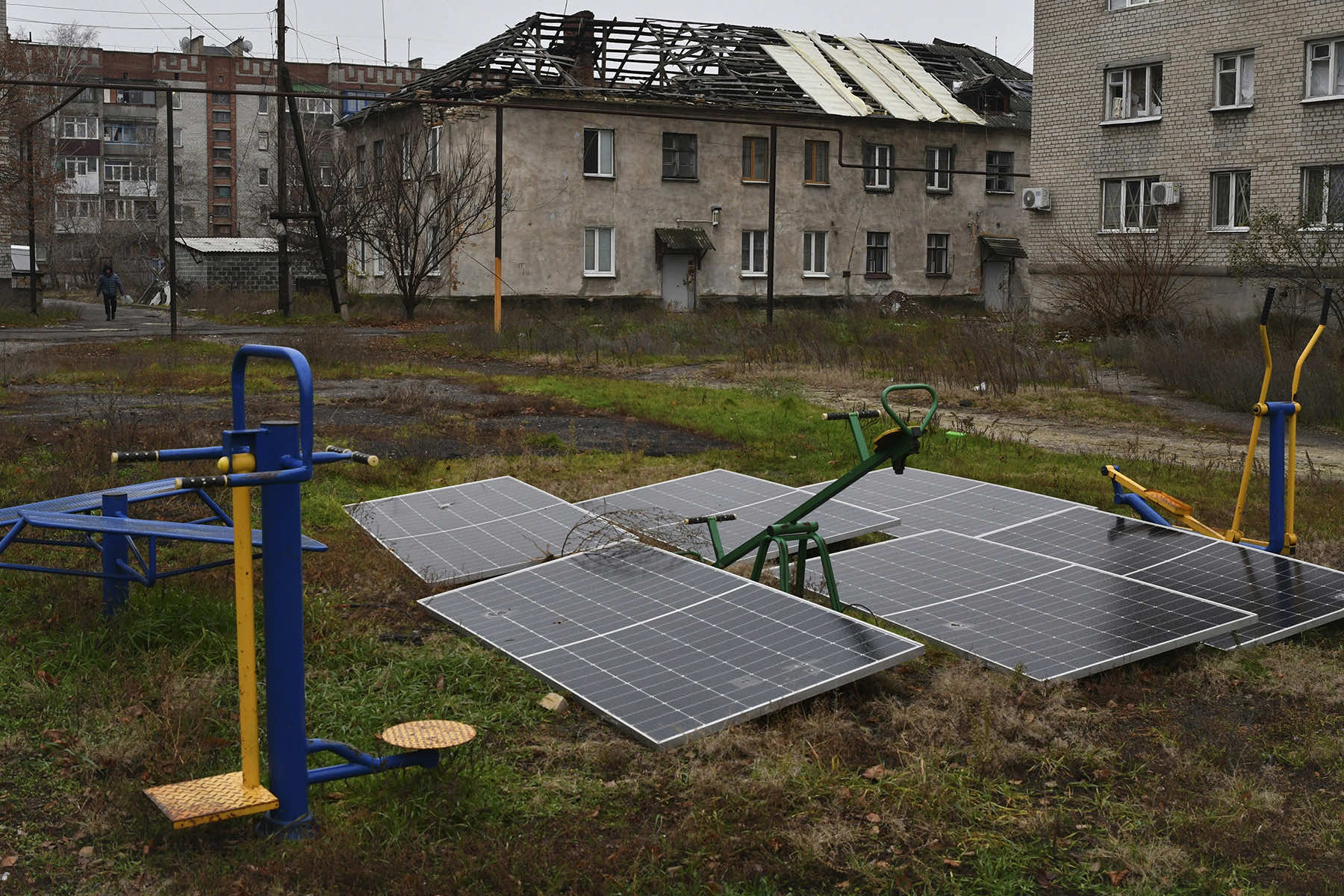Attacks on two DTEK solar farms last spring is a good example. They destroyed many solar panels and some of the transformers, which step up voltage for long distances or step it down for use in homes. Replacing the transformers and swapping out destroyed panels allowed the farms, which generate 400 megawatts, to be back up in seven days.
Timchenko said an attack on a thermal generating station, which experienced a similar amount of damage, took three to four months to rebuild.



Exactly!! Though I don’t understand why so many country’s and civilians are opposed to clean decentralised power generation such as solar, wind, thermal.
The fact that you get to generate your own “free” power, and its less likely to fail in times of natural disaster.
Its essentially “freedom” & “sticking it to the man” in one clean package. Its not what the media or propaganda calls “the green agenda”.
The fact that it also has applications in better national security is a win win.
Decentralised power generation makes you a american patriot! No a green hippy.
In fairness, my understanding is that there are a lot of complications with adding distributed power to existing grids. That doesn’t mean it shouldn’t happen, just that there are engineering and safety challenges when power is coming from “everywhere” vs centrally.
And of course, there’s a lot of energy companies lobbying against clean power sources as well.
This, and the fact that solar and wind are intermittent so you always need a baseline provider, you can’t do it with “green energy” alone.
Local and grid level storage can and should be included, but base-level nuclear is also good.
I hear that quite a bit of the power infrastructure in the US is well past its life expectancy with more coming due for replacement over time. If anything, a national energy plan should account for replacing, upgrading and modernizing a lot of the existing electrical infrastructure since its so critical to the foundation of our current society
Yeah but wind power plants are ugly here instead of even uglier somewhere else that’s NIMBY (Not In My Back Yard).
In agree there are always those few in a community that feel the need to fight everything, even it may be in their best interest and the best interest of the community as a whole.
Anecdotally, I used to live in a rural suburban neighbourhood, the type where homes have large yards between them. There was a proposal to finally put in sidewalks along the residential streets in front of the homes, by narrowing the street a little. This would allows children to walk safely to the new school built, and allow people in the neighbourhood to go on walks, or walk their dogs safely.
Anyways, the amount of push back from some residents saying it will ruin the character of the neighbourhood, or that it would remove vital street parking, or shrink their driveways.
The neighbourhood street was about 4.5 cars wide.
In the end the sidewalks got put in after someone (that did not live in the area), ran over a residents dog along the street.
“Boy, I sure love the sound and smell of cars! Imagine if people walked quietly instead, that would be awful - who would I yell at for speeding?”
Why does it seem like safety measures only ever get approved after someone died?
(Visibility bias, probably - a death is just a lot more noticeable than a “would have died in an alternative timeline but didn’t because…” - but that doesn’t make such deaths any less tragic)